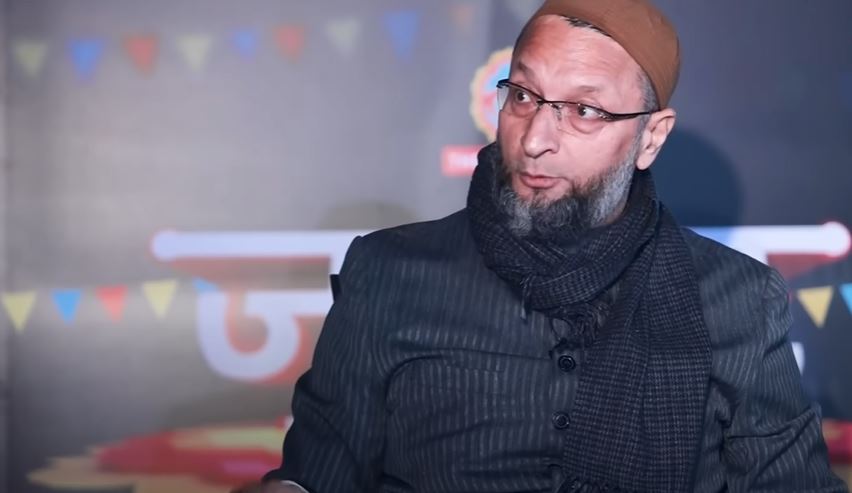Introduction: Owaisi’s Critique of Government Neglect
On July 29, 2024, AIMIM MP Asaduddin Owaisi delivered a scathing critique of the Indian government’s treatment of Muslims during a heated debate in the Lok Sabha. Owaisi accused the current administration of treating Muslims as “untouchables” and systematically denying them adequate political representation and economic opportunities.
Government’s Approach to Muslim Representation
During the Lok Sabha debate on the Union Budget, Owaisi harshly criticized the government’s approach to inclusivity and equity. He questioned the Finance Minister’s focus on select communities, asserting that the needs of the 17 crore Muslims in India were being systematically overlooked. “The Finance Minister’s speech highlighted several communities, but are there no poor, young people, farmers, or women among the Muslims?” he challenged.
Owaisi highlighted the economic and educational disparities faced by the Muslim community. He pointed out that Muslims are among the most economically disadvantaged groups in India, with Muslim women experiencing the highest levels of deprivation. According to the data presented by Owaisi, only 29% of Muslims aged between 15 and 24 have access to education. In comparison, Scheduled Castes have a 44% enrollment rate, Hindu OBCs 51%, and Hindu upper castes 59%. Moreover, the enrollment rate for higher education among Muslims is a mere 5%.
Economic Disparities and Employment Challenges
Owaisi’s critique extended to the economic hardships faced by Muslims. He revealed that while 58.4% of Muslims are self-employed, they have the lowest representation in regular wage employment at 15%, and the highest in casual labor at 26%. This disparity underscores a significant gap in job opportunities and economic integration for Muslim youth, according to Owaisi.
“The government’s treatment of Muslims as untouchables is evident in the lack of political representation and equitable share in national progress,” Owaisi asserted. His remarks underscored the broader issue of marginalization faced by the Muslim community in India, questioning the government’s commitment to inclusive development.
Budget Allocation and Allegations of Neglect
Owaisi’s critique also addressed the reduction in the budget allocation for the Ministry of Minority Affairs, which was cut from ₹5,000 crore to ₹3,000 crore. He highlighted that scholarships for minorities have not increased since the 2007-2008 fiscal year, further exacerbating the challenges faced by Muslim students.
The reduction in budget allocation and the stagnation of scholarship funds, according to Owaisi, reflect a broader pattern of neglect and insufficient support for minority communities. He accused the government of making “hollow promises” and questioned how a developed Bharat could be achieved while harboring animosity towards such a significant portion of the population.
Calls for Accountability and Reform
In his address, Owaisi also demanded a thorough investigation into allegations of corruption within the Haj Committee, calling for a CBI probe. He described the committee as a “centre of corruption,” underscoring the need for greater transparency and accountability in the management of minority affairs.
Conclusion: The Path Forward
Owaisi’s statements underscore the ongoing challenges faced by the Muslim community in India, particularly in terms of political representation, economic opportunities, and educational access. His critique highlights the need for more equitable policies and greater inclusivity to address the systemic issues affecting one of the country’s largest minority groups.
As India continues to grapple with these issues, the government’s response to these criticisms will be crucial in determining the path towards greater equity and social justice. The call for reform and increased support for marginalized communities reflects a broader demand for a more inclusive and representative governance structure.
Summary
AIMIM MP Asaduddin Owaisi has criticized the Indian government for neglecting Muslims, accusing it of treating them as “untouchables” and denying them adequate political representation. He highlighted disparities in education, employment, and budget allocations, calling for increased support and accountability.
Key Learning Points
| Key Learning Points | Explanation |
|---|---|
| Accusations of Neglect | Owaisi accused the government of treating Muslims as untouchables, denying them political and economic opportunities. |
| Economic and Educational Disparities | Data revealed that Muslims face significant educational and economic disadvantages compared to other communities in India. |
| Budget Allocation and Corruption Allegations | The reduction in the Ministry of Minority Affairs’ budget and stagnant scholarship funds were highlighted, along with calls for a corruption probe. |
Soumya Smruti Sahoo is a seasoned journalist with extensive experience in both international and Indian news writing. With a sharp analytical mind and a dedication to uncovering the truth, Soumya has built a reputation for delivering in-depth, well-researched articles that provide readers with a clear understanding of complex global and domestic issues. Her work reflects a deep commitment to journalistic integrity, making her a trusted source for accurate and insightful news coverage.



